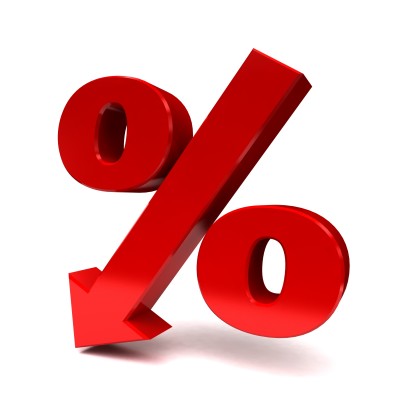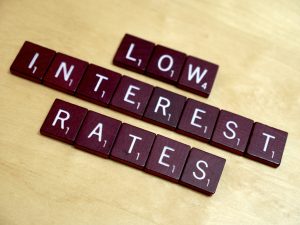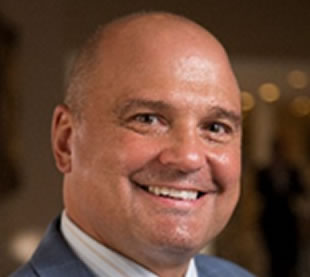
Are Low Interest Rates Hurting Or Helping You?
 To raise or not to raise? That has been the question for most of the past few years if you are a voting member of the Federal Open Market Committee (FOMC). The FOMC is the arm of the Federal Reserve Bank that votes on the direction of interest rates. The challenge is that while the U.S. economy shows signs of strength, the global economy has pockets of both weakness and extraordinarily low interest rates. Because of our relatively strong economy, raising interest rates here at home has been talked about a lot in the past few years. Why might this matter to you?
To raise or not to raise? That has been the question for most of the past few years if you are a voting member of the Federal Open Market Committee (FOMC). The FOMC is the arm of the Federal Reserve Bank that votes on the direction of interest rates. The challenge is that while the U.S. economy shows signs of strength, the global economy has pockets of both weakness and extraordinarily low interest rates. Because of our relatively strong economy, raising interest rates here at home has been talked about a lot in the past few years. Why might this matter to you?
In a world where overseas central banks in Japan and Europe are lowering interest rates and in some cases keeping rates negative the Federal Reserve Bank (The Fed), is faced with a series of trade offs. For example if the U.S. is the only major economy to raise rates then we may attract money from overseas investors who are seeking yield. Sounds good, right? But the flip side is that as this happens, our currency will appreciate and when it does, it costs more for overseas consumers to buy our goods. This hurts our exporters and eventually will weaken our economy.
With major economies like Germany and Japan offering negative yields on their, for example, ten year bonds, the Federal Reserve Bank (the Fed) has to walk a delicate line. Other countries are keeping their rates low in an effort to stimulate their slow-growth economies. And while it may not feel like it to millions of Americans who are financially struggling, the U.S. economy is one of the strongest in the world. So the Fed is under pressure to actually raise our interest rates to slow down our economy, offset the future threat of inflation, and restore a more normal term structure of interest rates.
How does this affect you? Basically, if you are a net borrower, you prefer low interest rates. Other than credit card debt which seems to be immune from the market forces of lower rates, the cost of most consumer debt is near all-time lows. This is evidenced by the zero percent offers at major home remodeling stores or auto dealerships eager to move product. And homeowners are also benefiting from very low mortgage rates.
But if you are a net saver, especially if you are a (near) retiree who is a conservative investor, then the Fed action has been crippling your ability to earn more than the rate of inflation. The unintended result of the Fed keeping rates low is that savers are punished by low interest rates and they are relegated to earning a negative real rate of return (which is earning less than the rate of inflation which results in a loss of purchasing power). In this environment, in an attempt to earn a positive real rate of return, many savers are led to riskier assets. The potentially negative impact of being in higher risk investments has not yet been felt by investors since we continue to enjoy one of the longest running bull markets in U.S. stock market history . But when the music finally stops, and those beloved dividend stocks and high yield bonds decline, investors may be disappointed when they find out what is in those “income funds” they own.
In this low interest rate environment, investors may feel tentative and for good reason. If the Fed signals that they are serious about raising interest rates, that could send shivers through the equity market that the party is over. And you may have heard the old saying “the bigger the party, the bigger the hangover”. As of now, no one knows why – or when – this stock market party is going end. But one indicator of that may very well be when the Fed raises interest rates and that is why so many eyes and ears are on the Federal Reserve Bankers every time they talk.
Mark Avallone, MBA, CFP®, CRPS®. www.PotomacWealth.com
Securities and Investment Advisory Services offered through H.Beck, Inc., Member FINRA/SIPC. 6600 Rockledge Drive, 6th Floor, Bethesda, MD 20817 301.468.0100. Potomac Wealth Advisors, LLC is not affiliated with H.Beck, Inc.
This material represents an assessment of the market environment at a specific point in time and is not intended to be a forecast of future events, or a guarantee of future results. This information should not be relied upon by the reader as research or investment advice regarding any funds or stocks in particular, nor should it be construed as a recommendation to purchase or sell a security. Past performance is no guarantee of future results. Investments will fluctuate and when redeemed may be worth more or less than when originally invested. Diversification and asset allocation do not guarantee against loss. They are methods used to manage risk.
* Opinions expressed are subject to change without notice and are not intended as investment advice or to predict future performance.
*The economic forecasts set forth in the presentation may not develop as predicted and there can be no guarantee that strategies promoted will be successful.
* Consult your financial professional before making any investment decision.


Engage us on Facebook
Follow us on Twitter
Tweets by @mymcmedia